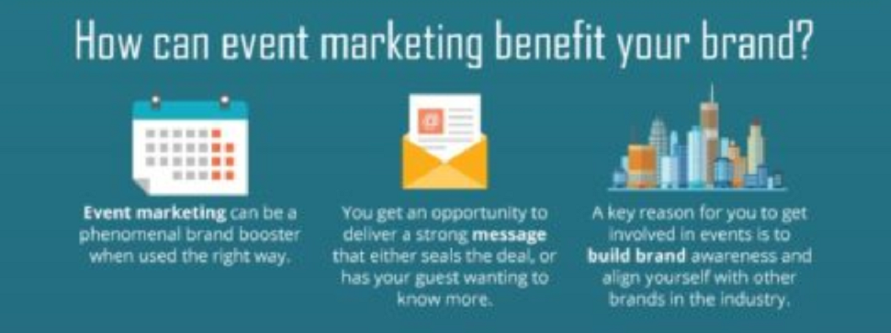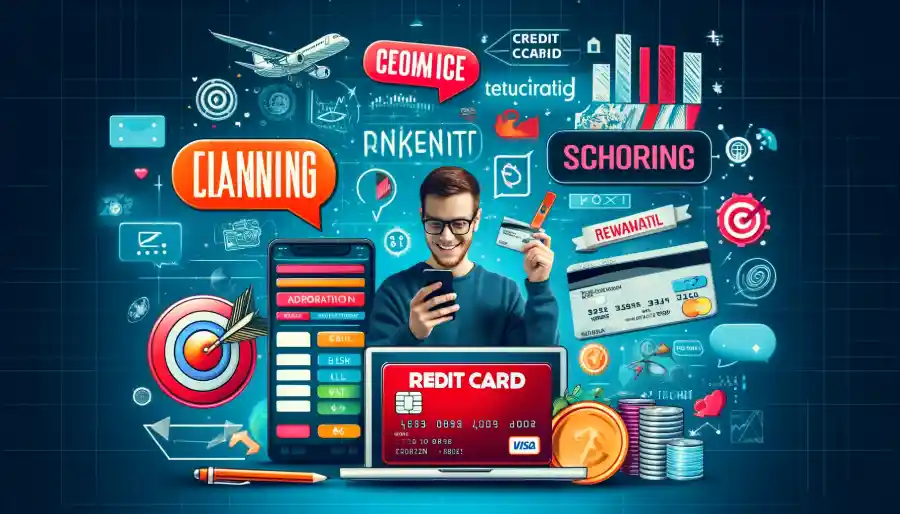Event Marketing: The Complete Guide to Creating Memorable Brand Experiences
What’s event marketing?
Event marketing is a promotional strategy that involve create, organize, and execute in person or virtual experiences to promote a brand, product, or service. Unlike traditional advertising that talk at consumers, event marketing engage with them direct, create memorable interactions that forge emotional connections between audiences and brands.
These strategic experiences range from large scale conferences and trade shows to intimate workshops and pop up events. The core objective remains consistent: to create meaningful touchpoints that transform passive consumers into active participants in a brand’s story.
The psychology behind event marketing
The power of event marketing lie in its psychological impact. When people participate in an experience quite than merely receive a message, their engagement deepens considerably. Research show that experiential marketing create stronger emotional connections than traditional advertising methods.
This psychological principle explain why brands invest significant resources in events. An advantageously execute event trigger multiple senses simultaneously, create richer memory associations. The face to face interactions foster trust and authenticity that digital campaigns oftentimes struggle to achieve.
Types of event marketing
Conferences and seminars
Industry conferences and seminars position brands as thought leaders while provide valuable educational content to attendees. These events typically feature keynote speakers, panel discussions, and network opportunities. Companies like Salesforce have master this approach with their annual dream force conference, which attract thousands of participants eager to learn about the latest industry trends.
Trade shows and expos
Trade shows offer brands the opportunity to showcase products direct to potential customers and industry partners. These large scale gatherings bring unitedly multiple companies within a specific industry, create a competitive yet collaborative environment. The Consumer Electronics Show (cCES)represent one of the virtually prominent examples, where tech companies unveil their latest innovations.
Product launch events
Product launch transform announcements into experiences, generate excitement and media coverage. Apple has perfected this format with their extremely anticipated product reveal that create immediate buzz and desire. These events combine theatrical elements with detailed product demonstrations to maximize impact.
Pop up experiences
Temporary, oftentimes unexpected installations or stores create a sense of exclusivity and urgency. Brands like museum of ice cream have pioneer experiential pop-ups that become social media phenomena, drive organic sharing and widespread awareness through immersive, extremely photographable environments.
Workshops and classes
Educational events provide direct value to participants while subtly showcase a brand’s expertise or products. Companies like Williams Sonoma host cooking classes that course demonstrate their kitchenware, create positive associations through practical application.
Sponsorships
Strategic partnerships with exist events allow brands to leverage establish audiences. Red Bull has built much of its marketing strategy around sponsor extreme sports events that utterly align with their brand identity of energy and adventure.
Virtual and hybrid events
Digital and combine digital physical experiences have expanded event marketing’s reach. These formats gain tremendous momentum during global travel restrictions and continue to evolve, offer greater accessibility and innovative engagement opportunities through technology.
Build an effective event marketing strategy
Define clear objectives
Successful event marketing begin with specific, measurable goals. Common objectives include:
- Increase brand awareness
- Generate qualified leads
- Strengthen customer relationships
- Educate the market about new offerings
- Create content and social media opportunities
- Drive direct sales
Each event should have primary and secondary objectives that align with broader marketing strategies. These goals determine everything from event format to success metrics.
Know your audience
Deep audience understand from the foundation of effective event marketing. Detailed demographic and psychographic profiles help create experiences that resonate on a personal level. Consider:

Source: learnqic.com
- Professional roles and decision make authority
- Industry challenges and pain points
- Communication preferences and consumption habits
- Previous engagement with your brand
- Motivations for attend events
This knowledge influence everything from venue selection to programming content.
Create a cohesive brand experience
Every element of your event should reinforce your brand identity and messaging. This consistency extend beyond visual elements to include:
- Tone and style of communications
- Quality of materials and production
- Staff interactions and hospitality
- Overall atmosphere and sensory elements
The virtually memorable events maintain thematic consistency while deliver unexpected moments that surprise and delight.
Leverage technology
Modern event marketing integrate digital tools throughout the attendee journey:
- Registration and ticket platforms
- Mobile event apps for schedules and network
- Live polling and interactive elements
- Augmented reality experiences
- Social media integration and sharing opportunities
- Post event surveys and feedback mechanisms
These technologies enhance the experience while provide valuable data on attendee behavior and preferences.
Promote strategically
Event promotion require its own marketing strategy. Effective promotion typically includes:
- Email marketing campaigns with strategic timing
- Social media content and pay advertising
- Industry partnerships and cross promotion
- Early bird incentives and exclusive offers
- Personalized outreach to high value prospects
- Content marketing that highlight event value
The promotion phase should build anticipation while distinctly communicate the unique benefits of attendance.
Measure event marketing success
Attendance metrics
Basic quantitative measurements provide initial insights:
- Total registration numbers
- Attendance rate (register vs. Actual )
- Audience composition and demographics
- Session popularity and engagement levels
- Dwell time at specific areas or exhibits
These metrics help evaluate the event’s reach and appeal.

Source: marketinginsidergroup.com
Engagement indicators
Qualitative measurements reveal deeper connections:
- Participation in interactive elements
- Questions ask during sessions
- Social media mentions and sentiment
- User generate content volume and quality
- Follow-up actions take post event
High engagement typically correlate with stronger brand impact.
Lead generation and conversion
Business outcomes provide concrete ROI measurements:
- Number of qualified leads collect
- Cost per lead compare to other channels
- Conversion rate from attendee to customer
- Sales attribute to event participation
- Customer acquisition cost via events
These metrics connect event activities direct to business results.
Brand impact
Long term effects measure brand building success:
- Pre- and post-event brand awareness
- Changes in brand perception
- Media coverage value and reach
- Net promoter score improvements
- Customer retention and loyalty indicators
These measurements capture the broader marketing impact beyond immediate sales.
Event marketing trends and innovations
Personalization at scale
Advanced data analytics nowadays enable personalized event experiences for each attendee. From customize agendas to tailor follow-up content, personalization create more relevant connections. Technologies like RFID wristbands and facial recognition help deliver these individualized experiences seamlessly.
Sustainability focus
Environmentally conscious event planning has evolved from a nice to have to an essential component. Brands progressively showcase their values through sustainable practices like:
- Zero waste production approaches
- Digital alternatives to print materials
- Topically sourced catering and supplies
- Carbon offset programs for travel impacts
- Reusable or biodegradable event materials
These practices resonate especially with younger audiences who prioritize environmental responsibility.
Immersive technologies
Virtual reality, augment reality, and mixed reality create new possibilities for engagement. These technologies transport attendee to differently impossible experiences, from virtual product demonstrations to immersive brand stories. The sensory richness of these experiences create stronger memory imprints than conventional presentations.
Hybrid event models
The integration of physical and digital experiences has created altogether new event formats. These hybrid approaches offer:
- Greater accessibility for global audiences
- Extended event lifespan through on demand content
- More diverse participation options
- Reduced environmental impact from travel
- Enhance data collection opportunities
Quite than just livestream physical events, successful hybrid models create distinct but complementary experiences for both audience types.
Common event marketing challenge
Budget constraints
Events oftentimes represent significant investments with complex ROI calculations. Marketers face the challenge of balance memorable experiences with financial realities. Strategic approaches include:
- Prioritize elements that forthwith support key objectives
- Leverage partnerships to share costs
- Create scalable concepts that work across budget levels
- Focus on quality over quantity of touchpoints
The virtually successful event marketers view budgets as creative constraints that drive innovation kinda than limitations.
Measure ROI
Connect event activities to business outcomes remain challenging. Best practices include:
- Establish clear attribution models before the event
- Create unique tracking mechanisms for event generate leads
- Implement consistent follow-up processes
- Measure both immediate and long term impacts
- Compare results across different marketing channels
Comprehensive measurement frameworks capture both tangible and intangible returns.
Stand out in a crowded space
As more brands embrace experiential marketing, create really distinctive events become more difficult. Differentiation strategies include:
- Focus on solve specific audience pain points
- Create unexpected combinations of concepts or formats
- Leverage unique brand strengths and personality
- Prioritize quality of interaction over spectacle
- Create shareable moments that extend organic reach
The virtually memorable events offer something attendees truly can’t experience elsewhere.
Examples of exceptional event marketing
Red Bull stratus
This record break space jump transcend traditional event marketing by create a global media phenomenon. Felix Baumgartner’s supersonic free fall from the edge of space utterly embodyRed Bulll’s brand promise of push boundaries. The event generate unprecedented media coverage and social engagement while reinforce the brand’s association with extreme achievement.
Salesforce dream force
This annual conference has evolved from an industry event to a cultural phenomenon that transform downtownSan Franciscoo. By combine valuable education with entertainment and philanthropy,dream forcee create a community experience that drive extraordinary loyalty. The event generate significant business results while reinforcSalesforcece’s position as an industry leader.
Refinery29’s 29 rooms
This immersive experience combine art, culture, and brand activations in an Instagram friendly environment. By partner with artists and brands that share their audience’s interests, refinery29 create a multisensory playground that course generate social sharing. The format utterly align with their editorial vision while create meaningful sponsorship opportunities.
The future of event marketing
Event marketing continue to evolve quickly, with several key directions emerge:
- Greater integration between physical and digital experiences
- Increase use of artificial intelligence for personalization
- More sophisticated data collection and application
- Heighten focus on accessibility and inclusion
- Evolution of events as content creation platforms
- Grow emphasis on community build over one time experiences
The virtually successful event marketers will balance technological innovation with the fundamental human desire for connection and shared experience.
Conclusion
Event marketing represent one of the virtually powerful tools in the modern marketer’s arsenal. By create meaningful experiences that engage audiences straightaway, brands can build connections that traditional advertising but can not match. The combination of emotional impact, direct engagement, and memorable interactions create last impressions that influence consumer behavior retentive after the event conclude.
As marketing continue to evolve toward more authentic, value drive approaches, event marketing’s ability to demonstrate brand values through action kinda than words become progressively valuable. The brands that will master this discipline — will create experiences that authentically will serve their audiences while subtly will advance business objectives — will enjoy significant competitive advantages in build will last customer relationships.



